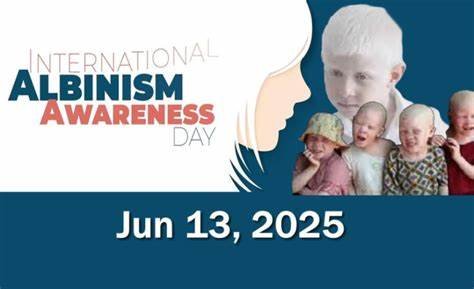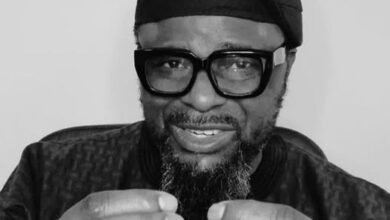International Albinism Awareness Day: Demanding the Rights and Dignity of People with Albinism

International Albinism Awareness Day, observed annually on June 13, is a time to reflect, stand in solidarity, and affirm the dignity and rights of persons with albinism.
Children with albinism face significant social hardship and prejudice, including disability-based discrimination, largely due to a lack of public awareness and understanding of the condition.
As we mark this day, we can work together to build a more tolerant society where children with the condition can live free from discrimination and receive the care they need through empathy, education, and research.
What is Albinism?
A child with albinism is born with less melanin pigment than usual due to a hereditary disorder. Melanin is the substance that gives color to the skin, hair, and eyes. It also plays a vital role in the development of the optic nerve, which means it contributes to normal eye function.
Children with albinism typically have very pale eyes, skin, and hair, although there can be individual variations in their coloring. Most of them also experience mild to severe vision problems.
Theme for International Albinism Awareness Day 2025
The theme for International Albinism Awareness Day 2025 is “Demanding Our Rights: Protect Our Skin, Preserve Our Lives.”
This year’s theme emphasizes the importance of early detection, proper treatment, and sun protection. It also highlights the life-threatening risks of skin cancer for those with albinism and the urgent need for better healthcare access and awareness.
2025’s International Albinism Awareness Day: Background and Importance
International Albinism Awareness Day was established by the United Nations General Assembly on December 18, 2014. The first official observance took place on June 13, 2015.
By passing this resolution, the UN Human Rights Council reaffirmed its commitment to protect people with albinism from violence and discrimination. This day serves both as a reminder of past injustices and as a beacon for a more inclusive future for individuals with albinism and their families.
The Challenges Children Living with Albinism Face
People with albinism continue to be among the most misunderstood and marginalized communities in the world, especially in parts of Africa, despite increased awareness.
Harmful superstitions that associate albinism with supernatural powers, curses, or spiritual beliefs still persist. These myths are not only false and demeaning, but they can also be extremely dangerous.
Such stigma has led to brutal attacks, murders, and mutilations in several countries, where body parts of persons with albinism are sold for ritual purposes.
Even where physical violence is absent, exclusion remains widespread. In healthcare and education, people with albinism often face systemic discrimination.
Untreated vision problems also contribute to poor academic outcomes for children with albinism.
Access to sunscreen, vital for protecting their sensitive skin, is often limited due to high costs or poor availability. Additionally, their stories and perspectives are often ignored by mainstream media and excluded from public discourse.
Way Forward
Information is the first step toward inclusion. It is the responsibility of governments, educational institutions, and the media to dispel myths and educate the public that albinism is a genetic condition, not a curse.
Inclusive education policies should ensure that children with albinism have access to large-print materials and protective clothing, etc. Healthcare systems should provide equal access to sunscreen and routine skin cancer screening.
True inclusion also means promoting leadership by people with albinism, listening to them, not speaking for them. Advocacy should center on their lived experiences. Decisions about their lives should not be made by those unfamiliar with the reality of exclusion.
Conclusion
On this International Albinism Awareness Day, let us renew our commitment to creating a society where children with albinism are not only accepted but also celebrated; where misinformation is not tolerated; and where the power of inclusion transforms lives and strengthens communities.
Inclusion is a right, not a favor.





